Archives: Documents
-
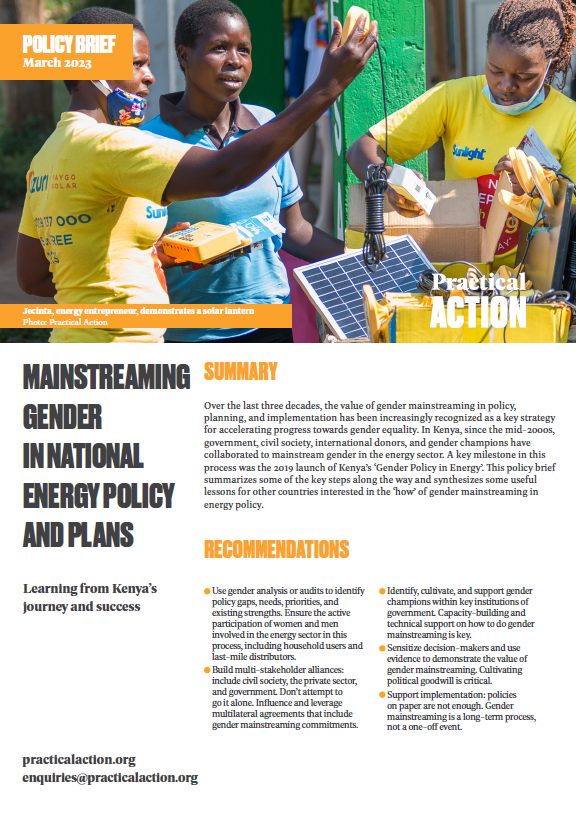
Mainstreaming Gender in National Energy Policy Plans
Over the last three decades, the value of gender mainstreaming in policy, planning, and implementation has been increasingly recognized as a key strategy for accelerating progress towards gender equality. In Kenya, since the mid-2000s, government, civil society, international donors, and gender champions have collaborated to mainstream gender in the energy sector. A key milestone in…
-
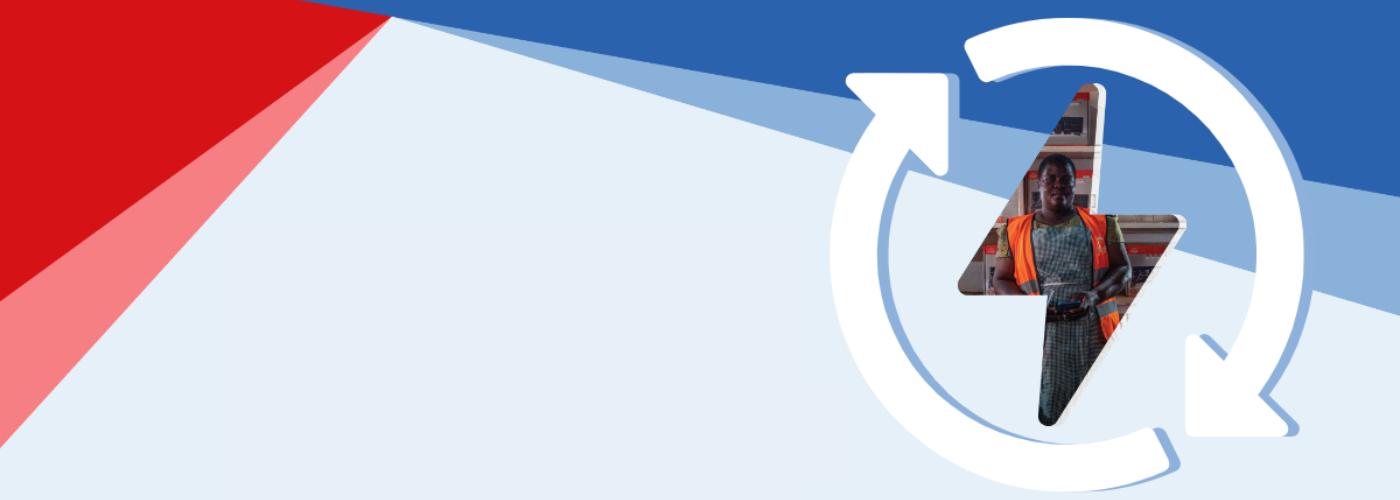
Building the Business Case for Women’s Inclusive Financing in Last-Mile Renewable Energy Markets
One of the key constraints in improving energy access in the renewable energy sector is the availability and affordability of financing. For women-owned or -led micro, small, or medium enterprises (WMSMEs) that are either selling or distributing renewable energy products themselves, or interested in purchasing renewable energy products to expand or grow their businesses, there…
-
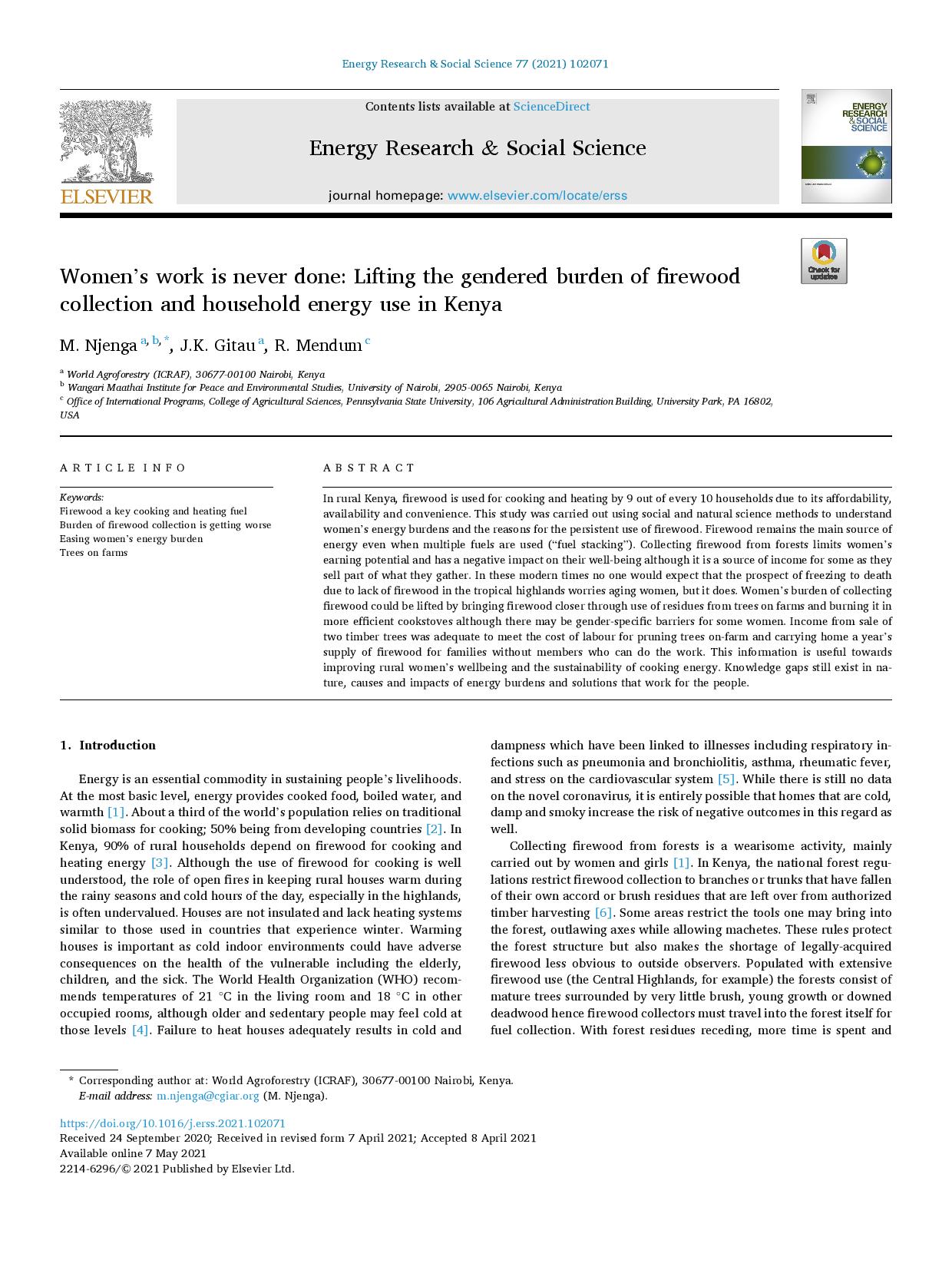
Women’s work is never done: Lifting the gendered burden of firewood collection and household energy use in Kenya
In rural Kenya, firewood is used for cooking and heating by 9 out of every 10 households due to its affordability, availability and convenience. This study was carried out using social and natural science methods to understand women’s energy burdens and the reasons for the persistent use of firewood. Firewood remains the main source of…
-
Gender and energy country briefs – Uganda
Energy is a critical enabler in reaching development goals. However, the benefits of increased access to modern and cleaner energy services often fail to accrue evenly to men and women. The African Development Bank and ENERGIA recognise the need to prioritise policy action in the field of gender and energy to meet the international Sustainable…
-
Gender and energy country briefs – Tanzania
Energy is a critical enabler in reaching development goals. However, the benefits of increased access to modern and cleaner energy services often fail to accrue evenly to men and women. The African Development Bank and ENERGIA recognise the need to prioritise policy action in the field of gender and energy to meet the international Sustainable…
-
Gender and energy country briefs – Rwanda
Energy is a critical enabler in reaching development goals. However, the benefits of increased access to modern and cleaner energy services often fail to accrue evenly to men and women. The African Development Bank and ENERGIA recognise the need to prioritise policy action in the field of gender and energy to meet the international Sustainable…
-
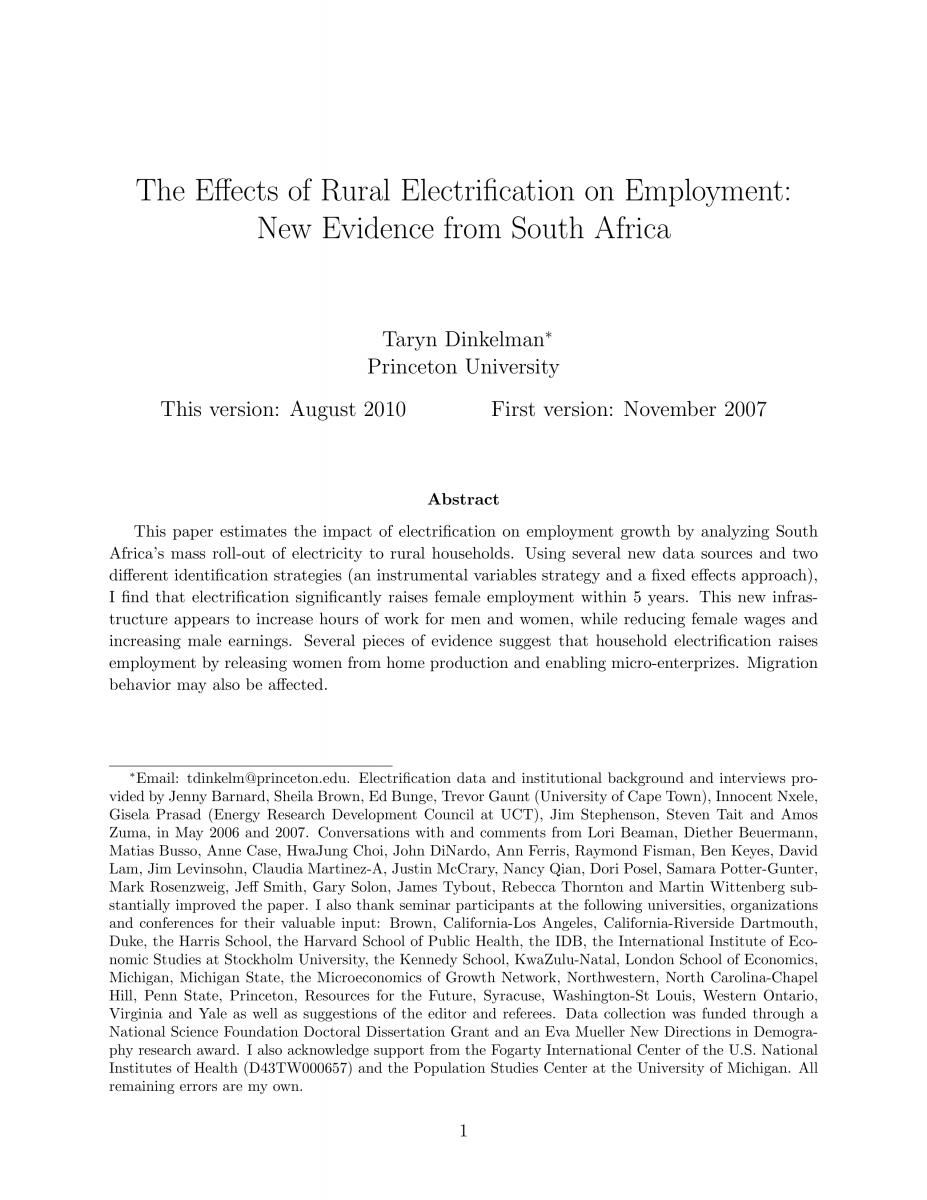
The effects of rural electrification on employment: New evidence from South Africa
This paper estimates the impact of electri cation on employment growth by analyzing South Africa’s mass roll-out of electricity to rural households. Using several new data sources and two di erent identi cation strategies (an instrumental variables strategy and a fi xed e ffects approach), I f nd that electri cation signi cantly raises female employment within 5 years. This new infrastructure appears…
-
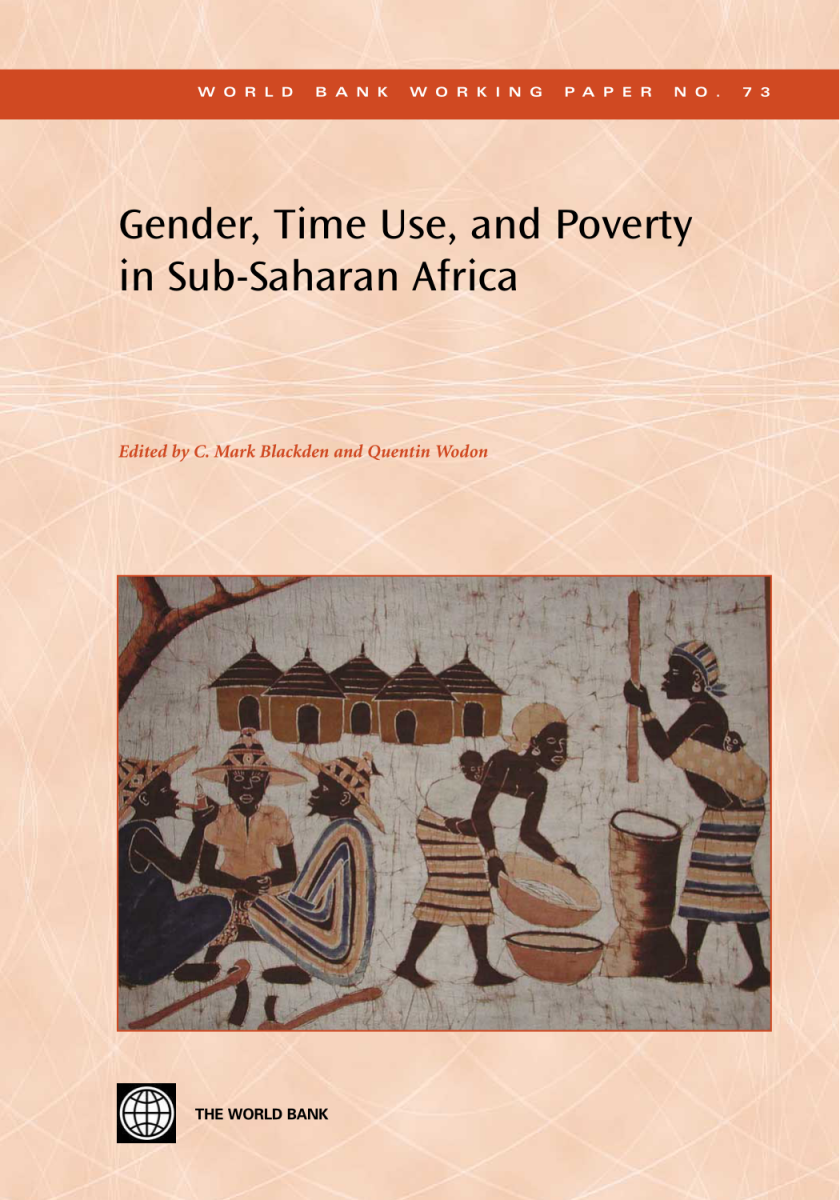
Gender, Time Use, and Poverty in Sub-Saharan Africa
The papers in this volume examine the links between gender, time use, and poverty in Sub-Saharan Africa. They contribute to a broader definition of poverty to include “time poverty,” and to a broader definition of work to include household work. The papers present a conceptual framework linking both market and household work, review some of…
-
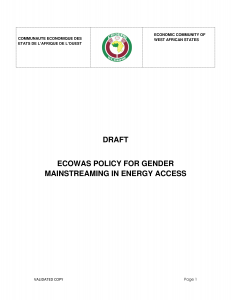
ECOWAS policy for gender mainstreaming in energy access
Countries of the Economic Community of West African States (ECOWAS), represented by the Ministries of Energy, validated on 4-5 June 2015 in Dakar, Senegal, the regional Policy to mainstream gender in all energy programmes, projects and initiatives implemented in the Member States, including large scale energy infrastructure projects and investments. Described as “revolutionary” by the…
-
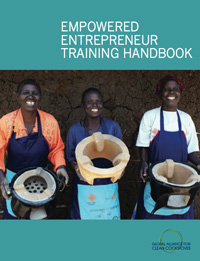
Empowered Entrepreneur Training Handbook
The Empowered Entrepreneur Training Handbook provides six days of business skills, empowerment, and leadership training curricula and tools that can be implemented to better support the women sales agents and entrepreneurs with whom you work. Thoughtful planning and preparation by organizers is required in order to successfully implement this training. Trainers and implementing organizations should…
-
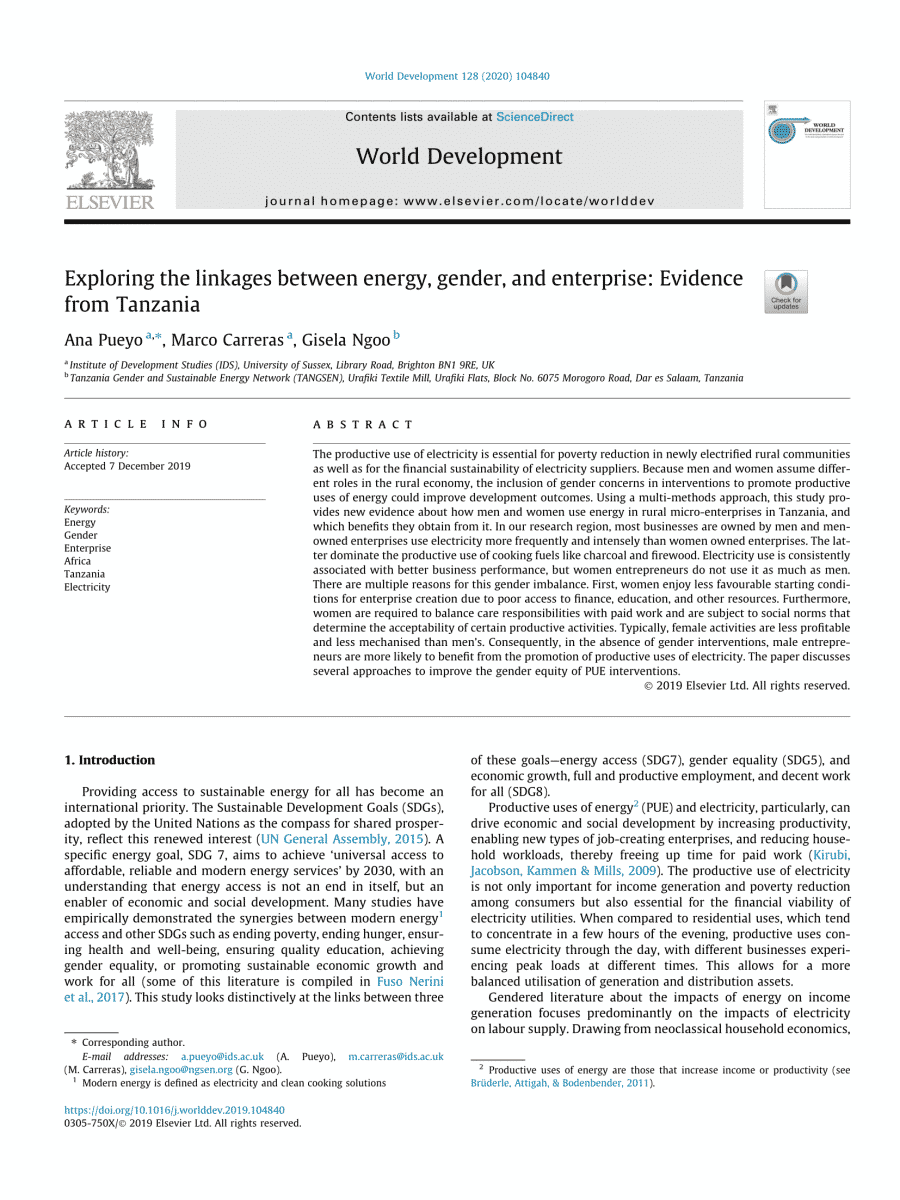
Exploring the linkages between energy, gender, and enterprise: Evidence from Tanzania
Highlights • The paper provides evidence about gender differences in the productive use of energy. • The research focuses on fishing communities in Lake Victoria, Tanzania. • Men and women use different types and quantities of fuel in their enterprises. • Electricity is consistently associated with better business performance. • A multi-methods approach combining qualitative and quantitative research is used…
-
Gender in the transition to sustainable energy for all: From evidence to inclusive policies
The five-year research programme on gender and energy (2014-2019), coordinated by ENERGIA, was supported by the UK’s Department for International Development (DFID) as part of its Sustainable Energy, Access and Gender (SEAG) programme. The objective of the programme was to generate and analyse empirical evidence of the links between gender, energy and poverty, and to…

